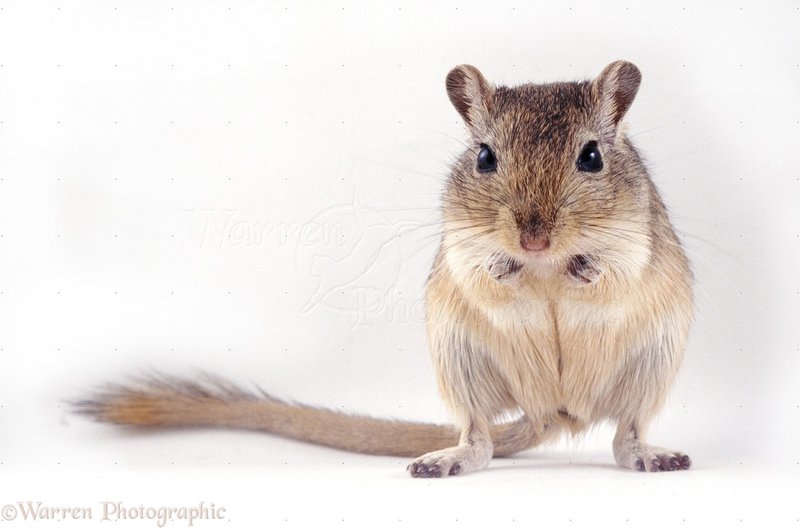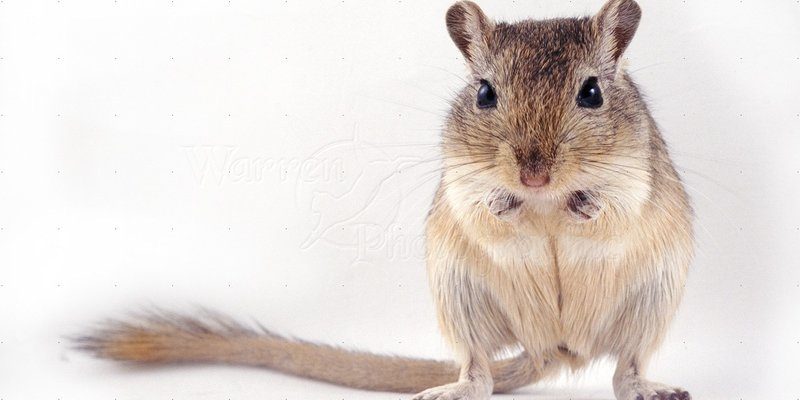
But what about their health and lifespan? That’s an important topic to explore if you want to be a responsible pet owner. Gerbils can live for several years, but their health and happiness depend on a few essential factors. Let’s dive into what you can expect regarding the lifespan of Mongolian gerbils and how to ensure they lead healthy lives.
Understanding the Lifespan of Mongolian Gerbils
Mongolian gerbils typically live between 2 to 4 years, but some may even reach up to 5 years with the right care. This lifespan places them somewhere in the middle when you compare them to other small pets. For instance, hamsters might live about 2 to 3 years, while guinea pigs can thrive for 4 to 6 years. So, while a gerbil isn’t the longest-living pet, they still have plenty of time to win your heart!
Several factors can influence how long your gerbil will live. Genetics play a role—like humans, some gerbils are just predisposed to certain health issues. Additionally, their environment and diet can significantly impact their lifespan. A gerbil that lives in a stress-free environment with proper nutrition will have a better chance of living a full life.
To maximize your gerbil’s lifespan, pay attention to their health needs from the time they come home. Regular vet check-ups, a balanced diet, and a clean habitat are crucial. The earlier you start focusing on their care, the better their chances of a long, happy life.
Common Health Issues in Mongolian Gerbils
Like any pet, Mongolian gerbils can face health issues, and being aware of these can help you react quickly if something goes wrong. Some of the most common problems include:
- Respiratory Issues: These can arise due to poor ventilation or dirty bedding. Symptoms include wheezing or labored breathing.
- Dental Problems: A gerbil’s teeth grow continuously, so they need proper chew toys to keep their teeth trimmed. If you notice difficulty eating, it could be a dental issue.
- Skin Conditions: Allergies or infections can lead to scratching and hair loss. It’s essential to monitor their skin regularly.
Let me explain: gerbils are quite good at hiding their discomfort, so you might not notice a problem until it gets serious. Regular interaction can help you spot any unusual behavior. If your gerbil seems lethargic or is eating less, it’s essential to consult a vet.
Being proactive about your gerbil’s health not only enhances their comfort but can also keep those vet bills at bay. Establishing a great routine will help ensure your little buddy stays healthy for as long as possible.
Creating a Healthy Environment for Your Gerbil
A clean, comfortable habitat is crucial for your gerbil’s health. Here are some tips on how to create a cozy living space:
– Cage Size: Make sure to provide a spacious cage. A minimum size of 24 x 12 inches is a good start but larger is always better. More space means more room for them to explore and play.
– Bedding: Use absorbent bedding like aspen shavings or paper-based products. Steer clear of cedar or pine, as these can be harmful.
– Toys: Gerbils love to chew, dig, and explore! Include tunnels, chew toys, and hideouts to keep them mentally stimulated.
– Temperature: Keep the cage in a stable environment. Gerbils prefer temperatures between 65°F to 75°F. Sudden temperature changes can stress them out.
Here’s the thing: creating a healthy environment is about more than just the physical space. It’s about providing mental and emotional stimulation, too. Rotating toys or adding new items occasionally can keep your gerbil engaged and happy.
Nutritional Needs for a Long Life
Diet plays a significant role in your Mongolian gerbil’s health and lifespan. A well-balanced diet can help prevent many health issues. Here’s what you should focus on:
– Pellets: High-quality rodent pellets should make up the bulk of their diet. Look for those fortified with vitamins and minerals.
– Fresh Vegetables: Offering small amounts of fresh veggies, like carrots and broccoli, can provide essential nutrients and variety in their diet.
– Seeds and Nuts: While they love seeds and nuts, these should be given in moderation as treats. They’re high in fat and can lead to obesity if overfed.
– Fresh Water: Always provide clean water. A water bottle with a sipper tube is often the best option, but make sure it’s checked daily.
You might be wondering why a healthy diet is so critical. It’s straightforward: good nutrition boosts their immune system, keeps their energy levels up, and aids in proper growth. Plus, it can prevent obesity, which is a common issue in pet gerbils.
The Importance of Social Interaction
Gerbils are social creatures that thrive on interaction—not just with other gerbils but also with their human companions. Spending quality time with your pet can promote emotional well-being, leading to a happier, healthier life. Here’s how to foster a good relationship:
– Daily Interaction: Set aside time each day to handle your gerbil gently. Let them become accustomed to your presence and touch.
– Playtime Out of the Cage: Supervised playtime outside the cage offers mental stimulation. Create a safe area where your gerbil can explore under your watchful eye.
– Consider Getting a Companion: Gerbils are generally happier in pairs or small groups. Just be sure to introduce them carefully to avoid territorial disputes.
Honestly, the bond you build with your gerbil can make a world of difference in their life. Social interaction can reduce stress levels, which is crucial for their overall health. Plus, it’s pretty fun to see their little personalities shine!
Regular Veterinary Care
Even with the best care, sometimes health issues can arise—this is where your veterinarian comes in. Regular check-ups can catch potential issues before they escalate. Here’s what you should know:
– Annual Check-ups: Schedule an annual vet visit to keep your gerbil healthy. This is the time for vaccinations, if necessary.
– Signs of Illness: Be vigilant about the signs of illness like changes in appetite, lethargy, or abnormal behaviors. If you notice something off, don’t hesitate to reach out to a vet.
– Emergency Care: Know where to take your gerbil in case of an emergency. Having a vet who specializes in small animals is a game-changer.
Here’s the thing: being proactive with your gerbil’s health can lead to fewer problems down the line. Regular vet visits might save you time, stress, and costs in the future.
Owning a Mongolian gerbil can be a truly rewarding experience. By understanding their health needs and providing a supportive environment, you can help your little friend live a happy, long life. Remember, their lifespan generally ranges from 2 to 4 years, but with proper care, they can sometimes surprise you and stick around a little longer.
Being attentive to their health, offering a balanced diet, and engaging with them socially makes all the difference. Plus, don’t forget to have fun along the way! Your gerbil is more than just a pet; they’re a companion that deserves your attention and love. As you care for them, you’ll not only enrich their lives but also find joy and laughter in their playful antics.

